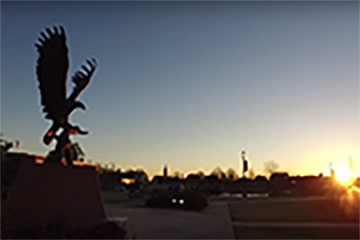Center for Community Engagement
About USM Community Engaged Learning
Page Content
The Center for Community Engagement supports USM faculty who incorporate community-based experiences into their courses. While not all community-based experiences are “service-learning” and not all community-based research is “engaged”, we can provide assistance with any community outreach initiatives.
Visit our pages on service-learning or community-engaged research to learn more.
General Support
- Get Connected at https://volunteer.usm.edu is USM’s online volunteer management platform. Students can sign up for service opportunities and report hours. Faculty, staff, and student leaders can request access to see how many hours students have completed.
- Funding for community engagement projects and community-engaged research (both faculty and student-led) are available.
- We can provides suggestions and connections to community agencies (some are online)
- We can collaborate on research, manuscripts, and funding proposals or connect you with faculty in other disciplines doing similar work.
Email christy.kayserFREEMississippi to inquire more about our support services.
